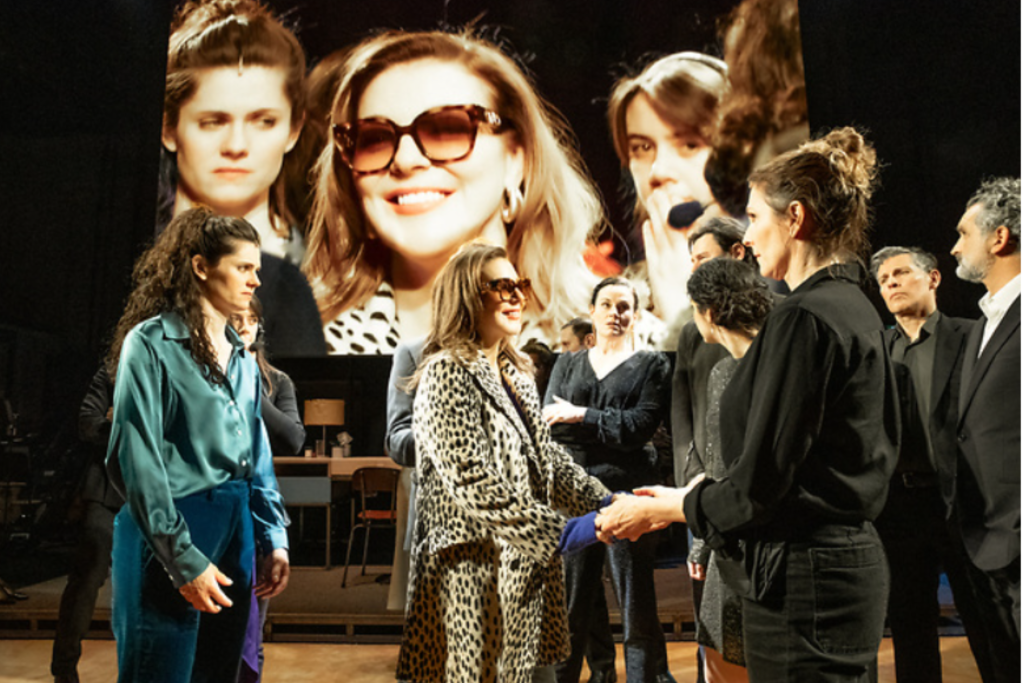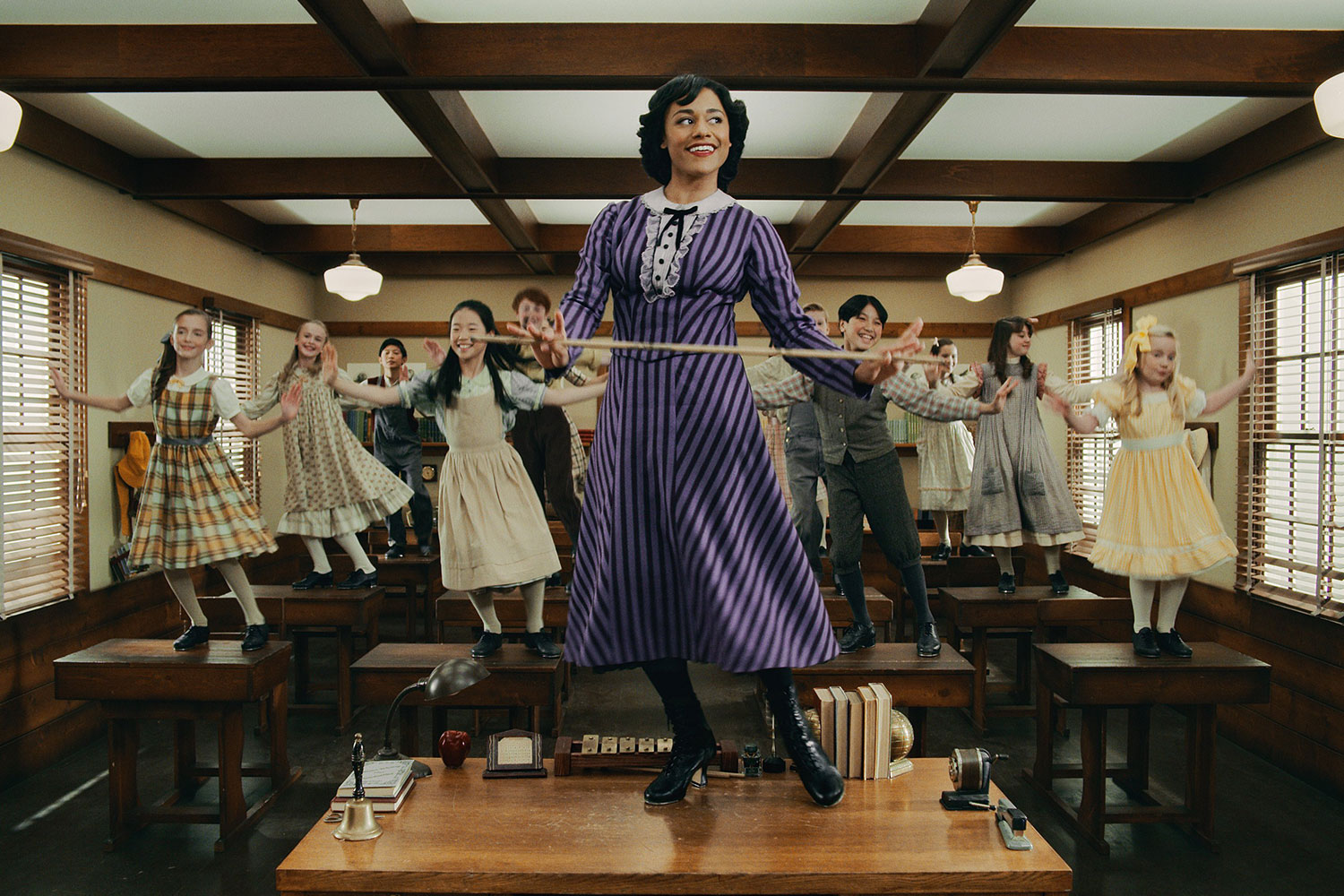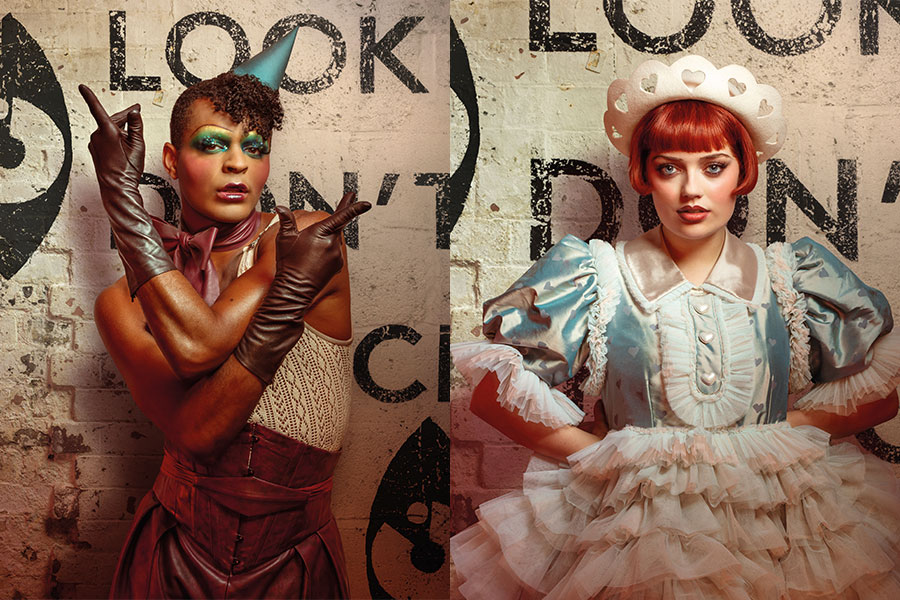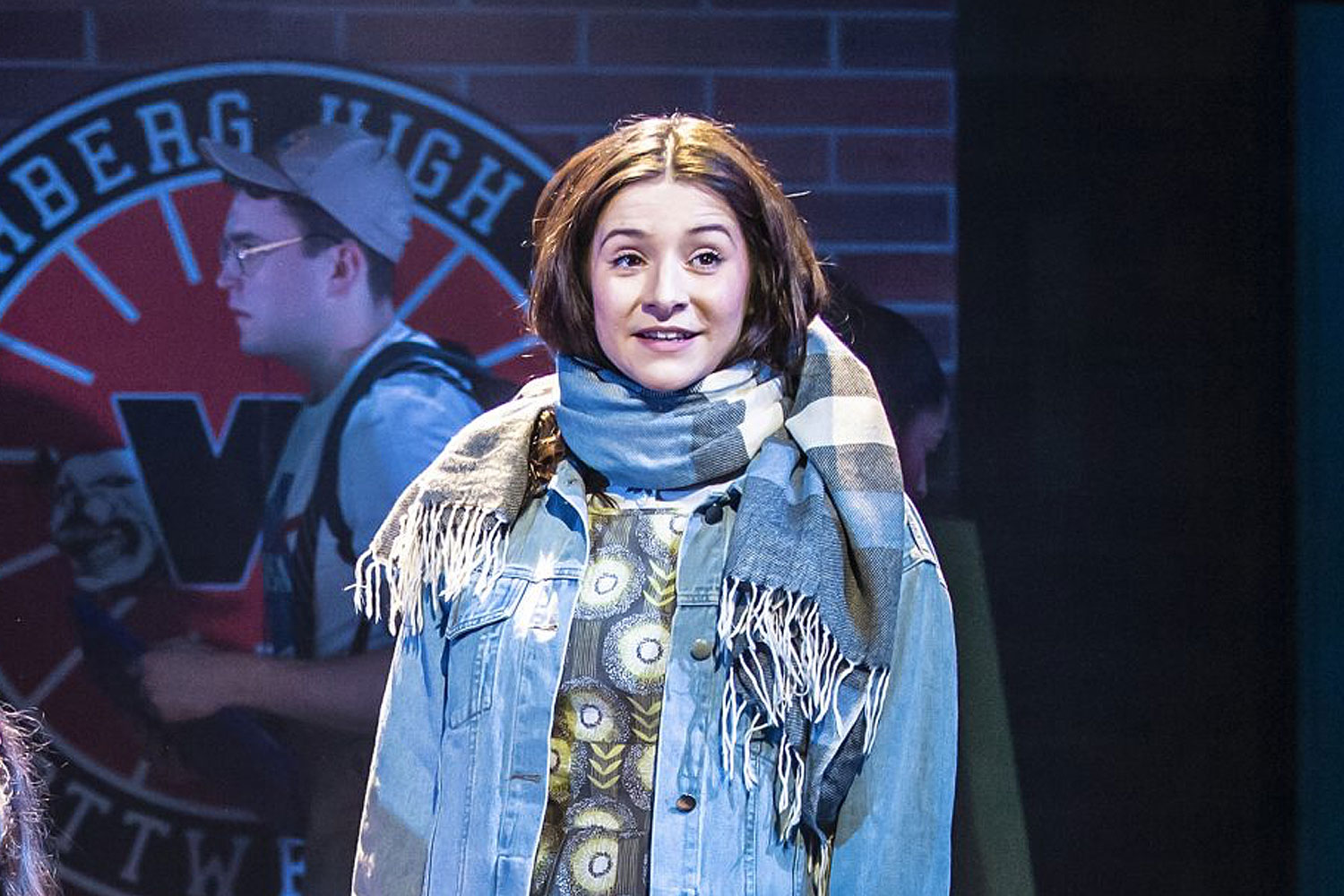Dear World
Based on an adaptation of Jean Giraudoux’s play The Madwoman of Chaillot it is now probably much closer to what was originally intended, but those 44 years have taken their toll. What is one to make now of a whimsical Parisian fable where corporate greed and a contaminated world are set to rights by a fantasy trial where a Sewerman inexplicably stands in to make the case of the villains, who are then ‘evaporated’ into a mysterious underground world which is reached, conveniently, via a secret manhole in the heroine’s living room?
As much as the themes of a corrupt world have a resonance today, Dear World contains such a mish-mash of styles that characters seem to pop in and out of different shows with alarming regularity. There is a goofy young man who calmly accepts a bomb with which to blow up a café, a girl who nevertheless falls in love with him instantly, a prospector for oil who shouts orders at everybody, three pinstriped ‘Presidents’ who leer and grimace like a trio of Captain Hooks, and a comedy gendarme who wouldn’t look out of place in an episode of ‘Allo ‘Allo.
And then there is Paul Nicholas as the aforementioned Sewerman, who hates to be up in the daylight for very long, but is of course full of worldly wisdom. Oh, and there is a mute clown who keeps leaping all over the place, like a more athletic Troppo from Salad Days.
In fact, if the production had a lighter touch it might somehow have gathered all these types into a pleasant soufflé, which trips along in the gentle style of a Jacques Tati film, but the earnest messages about saving the world sit very heavily over the proceedings, as does a bewildering mimed prologue which sets the wartime background.
The remarkable Betty Buckley, as Countess Aurelia, presides over the stage with grace, aplomb and sheer Broadway presence, but it is only in the scenes with her fellow ‘madwomen’ that the show fuses into a true delight. Annabel Leventon and Rebecca Lock are glorious as sisters Constance and Gabrielle, and when these three ladies are onstage, one sits back happily and drinks in the wit, silliness and charm of the piece. Elsewhere, it is sadly the silliness which comes to the fore.
The score contains three memorable numbers, in particular “And I Was Beautiful”, given the perfect bitter-sweet treatment by Miss Buckley, but is otherwise somewhat below par for the legendary Herman. The strangest thing of all, perhaps, is that another legendary figure, director-choreographer Gillian Lynne has considered this oddball of a show to be worthy of her particular talents.
– Giles Cole










